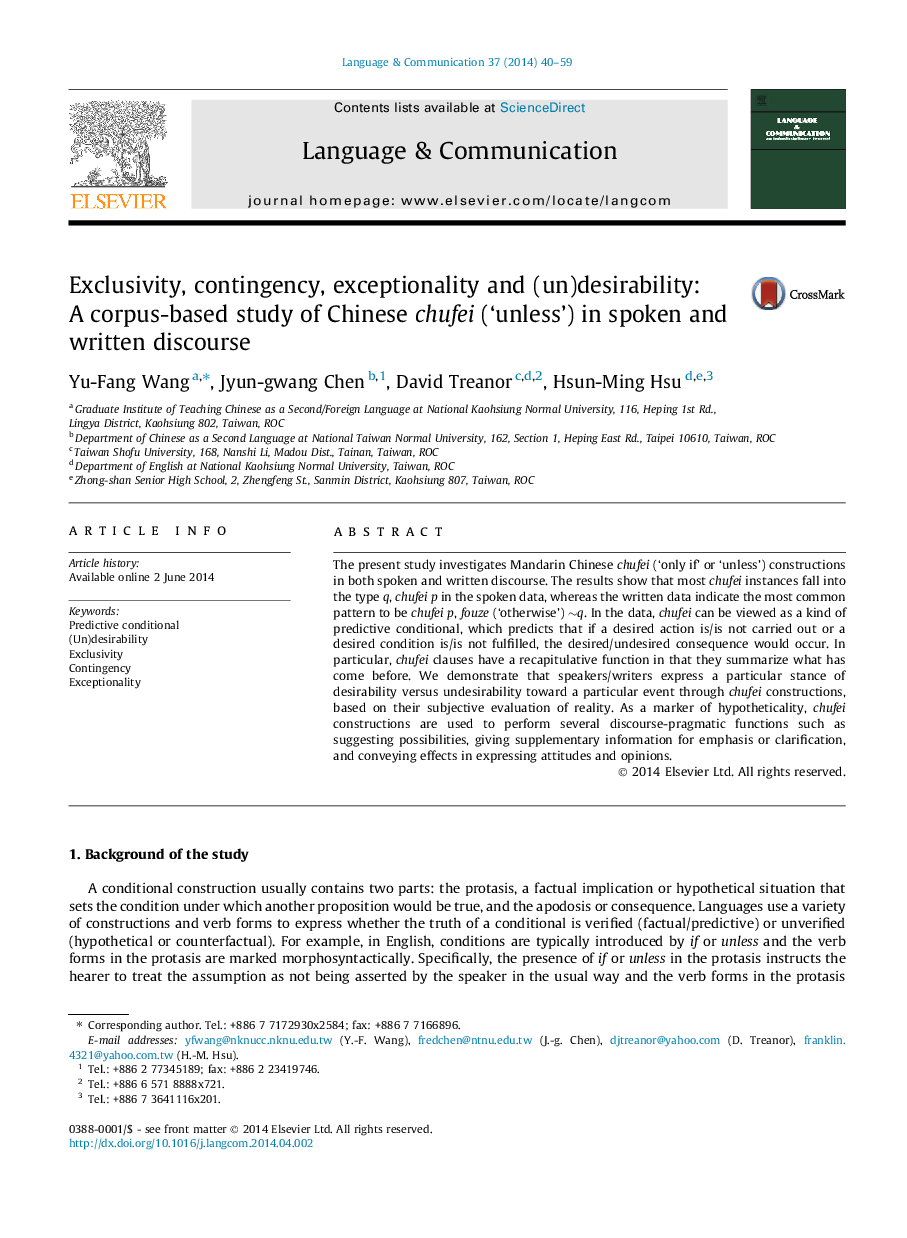| Article ID | Journal | Published Year | Pages | File Type |
|---|---|---|---|---|
| 934792 | Language & Communication | 2014 | 20 Pages |
•Chufei can be viewed as a kind of predictive conditional.•Chufei clauses have a recapitulative function in that they summarize what has come before.•Speakers/writers express a particular stance of (un)desirability toward an event through chufei constructions.
The present study investigates Mandarin Chinese chufei (‘only if’ or ‘unless’) constructions in both spoken and written discourse. The results show that most chufei instances fall into the type q, chufei p in the spoken data, whereas the written data indicate the most common pattern to be chufei p, fouze (‘otherwise’) ∼q. In the data, chufei can be viewed as a kind of predictive conditional, which predicts that if a desired action is/is not carried out or a desired condition is/is not fulfilled, the desired/undesired consequence would occur. In particular, chufei clauses have a recapitulative function in that they summarize what has come before. We demonstrate that speakers/writers express a particular stance of desirability versus undesirability toward a particular event through chufei constructions, based on their subjective evaluation of reality. As a marker of hypotheticality, chufei constructions are used to perform several discourse-pragmatic functions such as suggesting possibilities, giving supplementary information for emphasis or clarification, and conveying effects in expressing attitudes and opinions.
